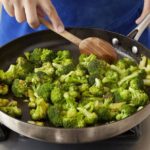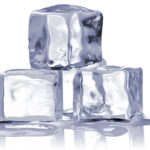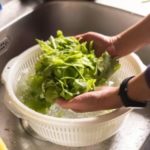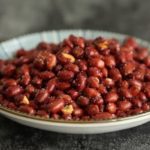When prepping fruits and vegetables before cooking, do you cut them before washing or wash them before cutting? Different people have different methods. Some believe in washing them before cutting, while others prefer the opposite. Some even say it depends on the type of produce.
Certain types of vegetables should be washed before cutting:
First, washing the whole bunch of leafy greens is easier than washing them after they are cut into small pieces. It’s difficult to clean soil and sand that get stuck in the small pieces. Washing the whole bunch under running water helps remove more dirt. But if you have already cut them, it becomes harder to wash under running water and requires soaking in a bowl.
Second, cutting vegetables before washing can lead to a loss of nutrients, especially vitamin B and C. Cutting exposes the vegetable to more water, causing a loss of chlorophyll, which contains these vitamins. Some studies have shown that the regular process of washing vegetables causes a 1% loss of vitamins, but cutting them before washing can lead to a loss of 14%-23% of their nutritional value.
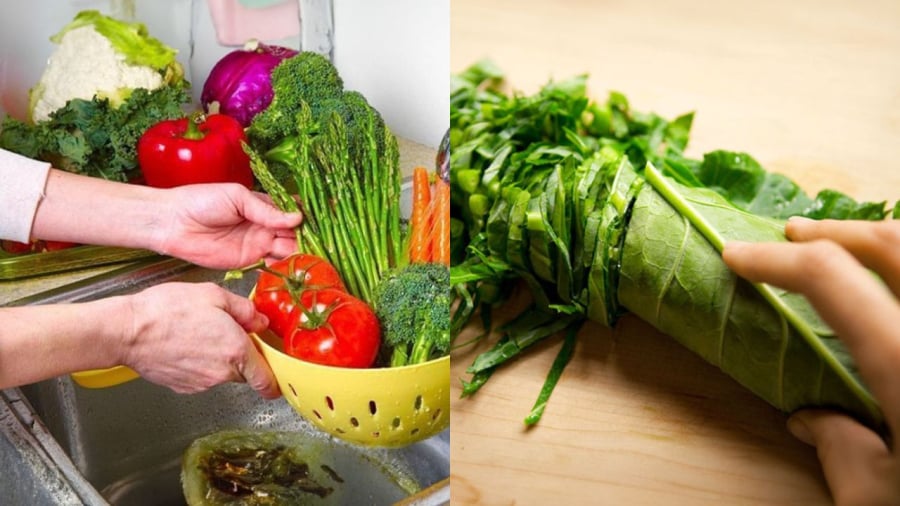
Third, some vegetables may not taste as good if they are cut before washing. For example, water spinach and morning glory have a slimy texture, and cutting them before washing makes them even slimier. If you are cooking a soup with these vegetables, the sliminess can affect the taste. Leaf mustard needs to be pounded to soften it before cooking. But if you pound it before washing, it will lose a lot of chlorophyll, making it taste less flavorful.
Some complex vegetables or roots should be cut before washing:
When prepping certain root vegetables and some leafy greens, it’s best to separate and wash them before cutting them into smaller pieces. For example, cabbage, cauliflower, and kale should be separated before washing. Then you can cut them into smaller pieces.
As for cassava, bamboo shoots, potatoes, taro, and green bananas, it is best to cut them into pieces, soak them, and then wash them before cooking. These vegetables have a bitter and toxic compound, so soaking them helps remove these compounds before washing.
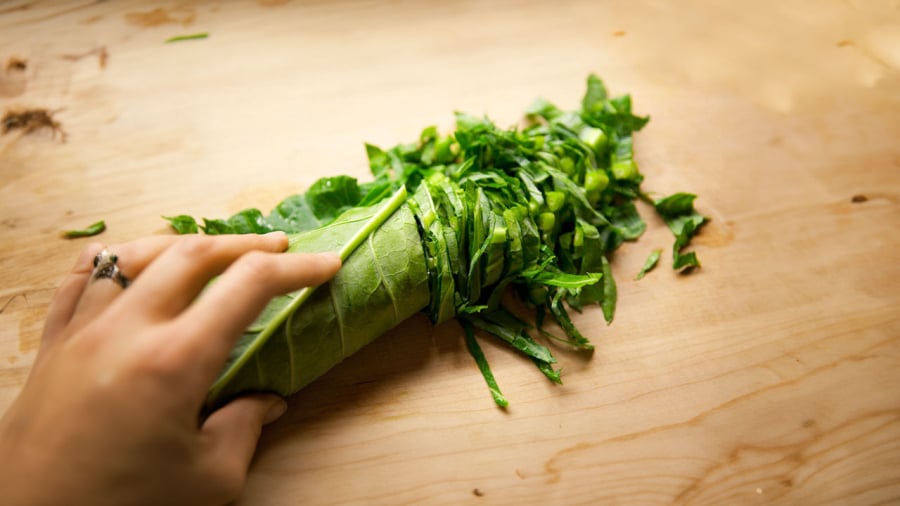
Eggplants and white eggplants should also be cut and soaked before washing.
Some vegetables that are eaten raw, like water spinach leaves and sliced bananas, should also be soaked and then washed to avoid browning.
Tips for washing vegetables:
When washing vegetables, it’s best to wash them under running water for better cleaning. For vegetables with complex structures like sweet cabbage, green cabbage, and cauliflower, pay attention to washing the crevices and stems as they tend to collect soil and sand.
For aquatic vegetables like water spinach, watercress, and water morning glory, be careful when washing them under running water to avoid contamination from parasites.
After washing, shake off excess water and cook the vegetables immediately to prevent them from becoming contaminated and losing freshness.
Avoid soaking vegetables in water for too long as it can make them soggy and more susceptible to contamination.
Avoid soaking vegetables in salty water, especially highly concentrated saltwater, as it doesn’t effectively kill bacteria and can make the vegetables soggy and more susceptible to contamination.
If you’re not using the vegetables immediately, try not to leave them damp for too long as they can become contaminated. Avoid leaving cut vegetables exposed to sunlight as it can degrade their vitamin content, especially vitamin C.
4 Mistakes That Can Strip Vegetables of Vitamins and Nutrients: 10 Common Errors That Cause Vegetables to Lose Their Natural Sweetness
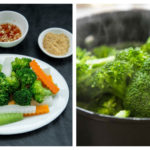 Vegetables of Vitamins and Nutrients: 10 Common Errors That Cause Vegetables to Lose Their Natural Sweetness’>
Vegetables of Vitamins and Nutrients: 10 Common Errors That Cause Vegetables to Lose Their Natural Sweetness’>The following mistakes when boiling vegetables below make your dish lose all its vitamins, nutrients, and the inherent sweetness it should have.
























